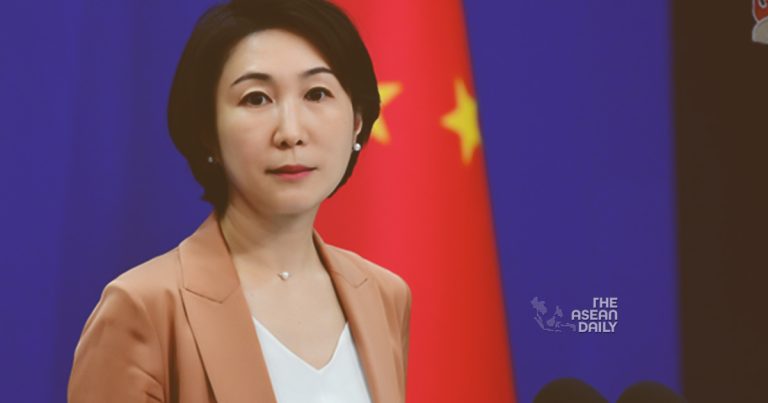13-4-2024 (BEIJING) China’s Foreign Ministry issued a strong rebuke on April 12 against the newly formed trilateral partnership between the US, Japan, and the Philippines, denouncing what it termed as the manipulation of bloc politics and the creation of “closed and exclusive circles” in the region.
Foreign Ministry spokeswoman Mao Ning asserted that Tokyo and Manila should refrain from engaging in trilateral cooperation at the expense of the interests of other countries, firmly opposing the joint vision statement issued after the first trilateral meeting at the White House on April 11.
The statement, jointly issued by US President Joe Biden, Japanese Prime Minister Fumio Kishida, and Philippine President Ferdinand Marcos Jr, highlighted commitments to bolster cooperation on economic development, technology, and climate change. However, analysts noted a shared security concern over China, particularly in the South China Sea and the East China Sea.
Ms. Mao criticised the joint statement, labelling it as a “wanton smear campaign against China,” emphasizing the need for clarity and transparency in international relations.
Mr. Liu Jinsong, director-general of the Asian Affairs Department at China’s Foreign Ministry, expressed “serious concerns and strong dissatisfaction” over Japan’s involvement in the trilateral summit to Mr. Yokochi Akira, chief minister of the Japanese embassy in China.
The new trilateral alliance adds to existing regional groupings such as the Aukus alliance and the Quad security dialogue, which Beijing perceives as targeted against its interests.
Tensions in the South China Sea have escalated due to Beijing’s confrontations with the Philippines, including incidents near the Second Thomas Shoal. Beijing’s expansive territorial claims in the region were deemed unlawful by an international court in 2016.
In response to joint naval exercises conducted by the US and its security treaty partners, including Japan and the Philippines, China views such actions as external interference and challenges to its sovereignty.
Associate Professor Chong Ja Ian from the National University of Singapore warned of potential escalations but stressed the importance of cautious diplomacy to prevent unintended consequences.
Assistant Professor Amrita Jash from the Manipal Academy of Higher Education in India noted that the trilateral partnership reflects a broader trend of alliances in the Indo-Pacific region in response to China’s assertive posture.




